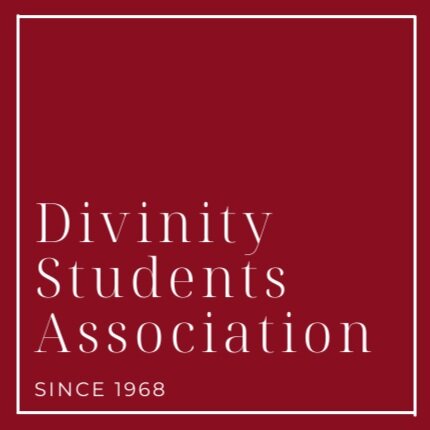Academic Clubs
Buddhist Studies Club
Confucian Commons
Ethics Club
Hebrew Bible Club
Hermeneutics of Faith Society
Islamic Studies Study Group
Philosophy of Religions Club
Religions in the Americas Club
Religion, Literature, and Visual Culture Club
Religion, Theory, and Interpretation Study Group
Theology Club
The Buddhist Studies Club is an interdisciplinary communal and academic space for students to come together outside the classroom in order to meet peers, build community, and further investigate questions in our field through more transdisciplinary lenses. The BSC’s chief purpose is to bring together students from different programs and departments who might not otherwise meet necessarily due to departmental siloing, but who nevertheless share a common interest in the scholarly study of Buddhism. Through activities like a reading group and local field trips, the group aims to facilitate further learning according to members’ interests as well as to investigate, question, and remedy the field’s challenges, such as forms of under-representation and potentially problematic historical norms and practices. We hope to foster a responsible, inclusive, connected academic community in the field of Buddhist Studies on and beyond campus.
Leaders: Seth Auster-Rosen and alicehank winham
Confucian Commons is a respectful, open, and inclusive space for all students and community members to discuss Confucian classics, teaching, and practices within or relevant to the Confucian tradition. In addition to occasional lectures, we hold weekly meetings every Wednesday evening to closely read and discuss Confucian texts and related works together.
Leaders: Diana Wang
The Ethics Club provides a forum for intellectual and social exchange for students and faculty interested in the study of religious ethics, ethics broadly construed, or disciplines that have moral or religious concerns. We host film nights, workshops, pub nights, study sessions, and other events. The Ethics Club frequently co-sponsors events with the Theology and Religious Ethics Workshop. If you would like more information or wish to subscribe to the email listserv, please contact us via email.
Leaders: Daniel Stanley and Anna Stoneman
The purpose of the Hebrew Club is to promote connection and collegiality among students focused on and interested in Hebrew Bible scholarship. Our club provides opportunities for connection, dialogue, and support between students at various points in their programs, and we facilitate a combination of social events, study groups (reserving spaces for students to discuss their current projects), and reading groups on the Hebrew Bible, the Septuagint, and relevant secondary literature.
Leaders:
The Hermeneutics of Faith Society provides a forum for students interested in an interdisciplinary approach to religion that refuse the false dichotomy of faith and suspicion as well as being put in a category. We want historians, poets, theologians, philosophers, and political theorists from all religious backgrounds and intellectual traditions to be able to come to the roundtable to truly engage what it means to be a part of the “study of religion.” We will have a reading group where YOU get to pick each meeting’s discussed text, followed right after by a social event. This is meant to be both an intellectual and social community. Please email us if you feel like you belong!
Leaders: Ethan Yu and Miriam Shah
The Islamic Studies Study Group is a doctoral student-led initiative that aims to build community with students and faculty from the Divinity School and affiliated departments whose primary research interest includes Islamic intellectual thought. The space aims to provide students with opportunities to workshop papers, dissertation chapters, conference presentations, job talks and read/translate primary texts along with building social connections with Chicago/HP scholars, events and Muslim communities. The group welcomes multidisciplinary approaches (anthropology, history, political science, literary, social etc.) to the study of Islamic thought with a particular emphasis on use of primary sources.
Leaders: Farah Akhtar
The Philosophy of Religions Club offers a space for students to explore philosophical questions that emerge from religious beliefs, practices, and critical reflections on them. Our club fosters dialogue on philosophy across Western and non-Western traditions, spanning Chinese, Indian, Islamic, and continental thought. Activities include reading groups and social events that provide opportunities to connect with peers across different academic areas who are interested in the fundamental questions.
Leaders: Wang Xing Hao
The Religions in America Club is a forum to explore the role of religion in American culture from the colonial period to the present day. We frequently co-sponsor events with the Religions in the Americas Workshop, including paper presentations by students, faculty, and visiting scholars. We also host pub nights and other social events. Please visit our workshop website for a schedule of these events, and email us if you have a paper you would like to present.
Leaders: Hannah Ozmun, Maggie Goldberger, and Nathan Tucker
The RLVC Club promotes the engagement of students of religion with a broad range of phenomena related to literature and visual culture: textual, visual, and material cultures, rhetoric, poetics, narratology, aesthetics, philosophy, hermeneutics, criticism and literary theory, film, media and performance studies, and other relevant fields. Our primary venue for this is paper workshops, and we welcome proposals that touch on any of these issues.
Leaders:
The Religion, Theory, and Interpretation Study Group is a PhD student-led study group that focuses on interdisciplinary approaches to the study of religion that students and faculty employ in their research. The group facilitates conversations on both student writing and published work.
Leaders:
The Theology Club is a forum for discussion of theology, understood as scholarly reflection on doctrines, texts, practices, and material cultures of religions. Theology, in this sense, is taken to center “first person” accounts of religious practice and experience while also valuing second order reflection on these accounts. Interdisciplinary approaches are encouraged.
Leaders: Luis Alvarado and Annalea Thiessen
